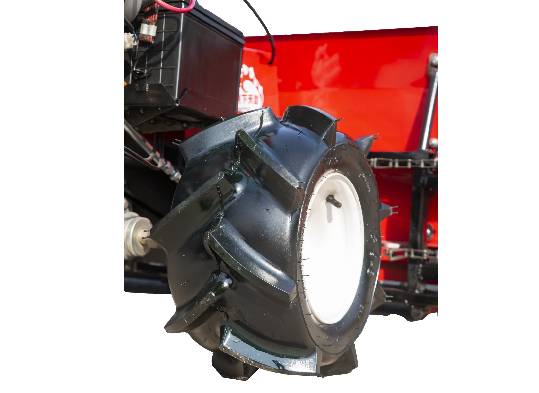poultry litter windrower
The Importance of Poultry Litter Windrowers in Modern Agriculture
Poultry production is a substantial sector within the agricultural industry, providing a significant source of protein for the global population. However, with the growth of poultry farming comes the challenge of managing waste effectively. Poultry litter, consisting primarily of droppings, feathers, and bedding material, can pose environmental concerns if not properly handled. This is where poultry litter windrowers come into play, serving as an essential piece of equipment in the sustainable management of poultry waste.
Understanding Poultry Litter and Its Management
Poultry litter is rich in nutrients and organic matter, making it a valuable resource for soil health when properly recycled. However, improper management can lead to odor issues, water contamination, and other environmental problems. Traditionally, many farmers simply discarded poultry litter or stored it in large piles. This approach can result in nutrient runoff into water sources and generate odors that affect local communities.
To mitigate these issues, farmers are increasingly turning to windrow forming as a more effective and environmentally friendly solution. A windrower helps in aerating, turning, and mixing the poultry litter, which accelerates the decomposition process, reduces odor, and creates a more manageable product that can be repurposed as fertilizer.
How Poultry Litter Windrowers Work
A poultry litter windrower is typically a specialized agricultural implement designed to turn and aerate organic material. It works by gathering litter into long, narrow rows, known as windrows. The primary functions of a windrower include
1. Aeration By turning the litter, windrowers increase the exposure of organic materials to air. Aeration is crucial for fostering aerobic bacteria, which help break down the nutrients and pathogens in the waste more efficiently.
2. Moisture Management Poultry litter often retains significant moisture. Windrowers help evenly distribute moisture content, allowing for more effective breakdown and reducing the risk of anaerobic conditions that can lead to foul odors and harmful emissions.
poultry litter windrower

3. Pathogen Reduction The heat generated during the composting process, combined with the increased aeration, assists in reducing pathogens and parasites, making the final product safer for use as a fertilizer.
4. Nutrient Stabilization By managing the decomposition process, windrowers help stabilize nutrients in the litter. This makes the resulting compost more beneficial as a soil amendment, providing a slow-release of essential nutrients to crops.
Benefits of Using a Poultry Litter Windrower
1. Environmental Protection By effectively managing poultry waste, windrowers help protect local water sources from nutrient runoff, thus playing a vital role in preserving ecosystems.
2. Odor Control Farmers using windrowers report a significant reduction in odors associated with poultry production, benefiting both the farming operations and the surrounding communities.
3. Cost-Effective Fertilizer The end product of treated poultry litter can be sold as a high-quality organic fertilizer, providing farmers with an additional revenue stream and reducing their reliance on synthetic fertilizers.
4. Soil Health Improvement Regular application of composted poultry litter enhances soil structure, increases microbial activity, and improves moisture retention, all of which contribute to healthier crops and higher yields.
Conclusion
The integration of poultry litter windrowers into modern poultry farming practices represents a significant advancement in waste management and sustainable agriculture. As the demand for poultry products rises globally, and as environmental regulations become more stringent, tools like windrowers are essential for ensuring the ethical and responsible treatment of agricultural waste. By fostering a circular economy where poultry litter is recycled into valuable fertilizer, farmers can enhance their productivity while minimizing their ecological footprint. Ultimately, the use of poultry litter windrowers contributes not only to the sustainability of poultry farming but also to the preservation of the environment for future generations.
Latest news
-
When to Upgrade Your Old Forage HarvesterNewsJun.05,2025
-
One Forage Harvester for All Your NeedsNewsJun.05,2025
-
Mastering the Grass Reaper MachineNewsJun.05,2025
-
How Small Farms Make Full Use of Wheat ReaperNewsJun.05,2025
-
Harvesting Wheat the Easy Way: Use a Mini Tractor ReaperNewsJun.05,2025
-
Growing Demand for the Mini Tractor Reaper in AsiaNewsJun.05,2025







